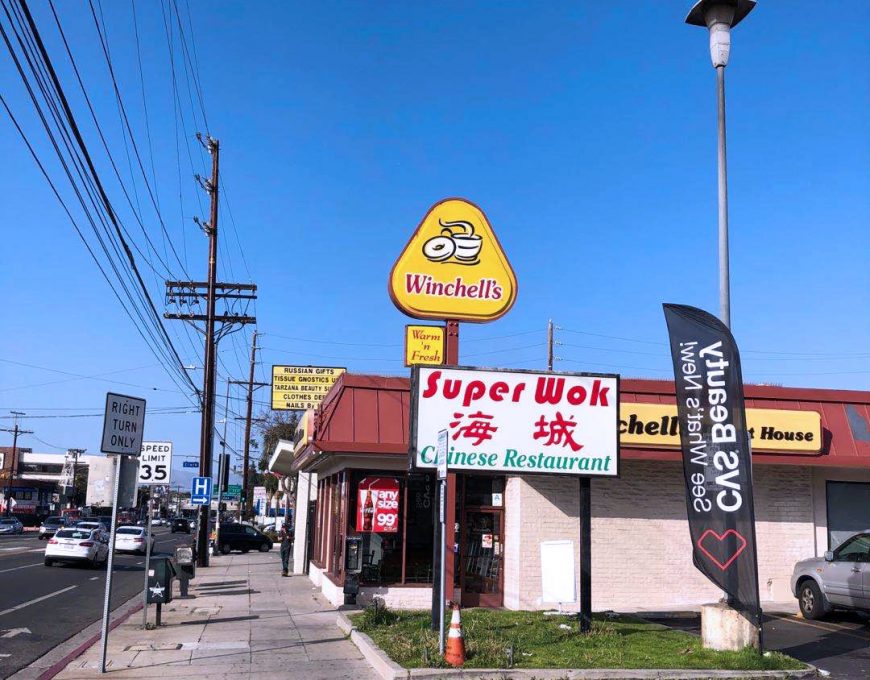Fear
If you care to live a life without fear, for the love of snack cakes, do not study history. Or cosmology. Do not read about Rome or Influenza or the birth of our solar system. Do not form an opinion on how quickly and with how little forewarning civilizations cease to function. Do not read about wars, and about the many millions of slaughtered families who would not be uprooted by them, not because they didn’t have the resources to go, but because they chose not to.
The thing is, I am afraid. And I don’t understand my own fear. I was in China in 2003, during the SARS epidemic. I got on the plane to North Korea in 2013 with a box of Sour Patch Kids and a heady mix of elation, curiosity and fatalism. I was keyed up in both cases, but I wasn’t afraid.
I hate to even use the word “fear”. It’s melodramatic, infectious, and I’m not even sure it’s warranted. I’m not cowering in the closet with a paper bag and a bottle of Valium. Mostly I’m just bicycling around Reseda in a state of uncertainty, waiting for my universe to go back to normal.
My expat friends – many of whom are in the same boat, stranded by indecision or circumstances outside of China – keep reminding each other that we’ve all spent decades displaced, in transit, and immunizing ourselves against the contagion of American fear.
Life in China, as an American, is an ongoing exercise in defusing anxiety by proxy. Your friends back home, the ones who’ve never visited, assume you’re in imminent danger of being black-bagged for saying “democracy” in a subway station, and the echo-chamber of DC politics chants terror of the Communist threat.
The settled people in your life spend their own days working to put as much distance as possible between themselves and ruin. They see that you haven’t built the same buffers, or bought the same car insurance, and they are afraid on your behalf. But you get your 2am dumpling delivery from the yexiao place down the street, and you talk openly about the Cultural Revolution with your Chinese colleagues, and you buy your sports bras at H&M, and you ignore all the noise. You tell yourself this is a refusal to capitulate to fear.
Life in China is also an exercise in managing insecurity, in coming to grips with a perpetual low-grade sense of displacement. You can decorate your apartment with as many throw pillows as you like, but with few paths to permanent citizenship, you understand that sooner or later, you’ll have to leave.
Somehow, now, in this place of all sunny places, fear has caught up to me.
It rained yesterday in Los Angeles. Weather service predicted a massive downpour, but a few sprinkles into the afternoon and the sun came out. The very kind friend with whom I am staying came back from Target and reported that the shelves were stripped of hand sanitizer and Clorox wipes. Costcos on the East Coast are selling out of toilet paper as the American public innoculates themselves against the possibility of wiping with anything less than three-ply for a couple of weeks. Scratch the surface, just a little scratch, and the specter of chaos is under there, whispering something about a 3% fatality rate and plunging stock markets.
Thing is, after almost 20 years, China is the closest thing I have to home. I don’t belong there, but it’s where I belong. In light of my American passport, this sense of belonging strikes me as slightly narcissistic. China does not care about my place within it. I’m an immigrant. Whether I am there, or not there, matters not at all.
But love doesn’t have to be a two-way street. I make calls and calls and calls, calls to both sides of the ocean, trying to cut through the fear. All I end up with is indecipherable static, and I can’t figure out if going back now constitutes recklessness, or self-involvement, or refusal to engage with hysteria.
Unfortunately, the line between courage and stupidity can only be sussed out in hindsight. Everything worked out fine? Well, hey, you brave creature you, congratulations on rejecting the invitation to panic. Everything went to hell? The signs were clear as day. No one to blame but yourself.
So? Is this courage or childish bravado? Guess I’ll find out later. In any case, I want to go home.
Community
Six months ago, I was coming back from the Meilimei with a bag of dragon fruit when the old lady who collects cardboard stopped me on the way in. I’d seen her before with the rest of the retirees on the neighborhood committee, stacking up the packaging from everyone’s Taobao deliveries, but we’d never spoken. She lives in my walkup, though I couldn’t say which floor.
“So,” she said, by way of introduction, “how was the chicken stir-fry?”
I guess they’d all watched me carry home the ingredients the day before. I guess the Party knew what I was eating.
The West conceptualizes the Party as a cabal of Marxist cadres in silly hats riding around on tank-mounted missiles. And sure, that’s the macro view. But in the microcosm of the day-to-day, the Party manifests as an activity club for the over-65 set. Throughout China, city and district governments leverage the neighborhood committees to enforce Party policy at the household level. The committees, at least in my experience, are run by a legion of grandparents empowered with a bizarre, semi-State-backed mandate to stick their nose into everyone’s business.
Intrusive? Yeah, it’s intrusive. It’s intrusive in the way your grandma is intrusive when she asks if you’re getting enough vitamin C. Or when she explains that your womb is withering into a husk of neglected womanhood, so you better find a penis to bounce up and down on before you spend the rest of your life wallowing in wine and regret.
But by the same token, it’s also socially stabilizing. It’s socially stabilizing in the way that your grandpa fought in Vietnam, and still puts a crisp fiver in your birthday card every year, even though you’re over 30.
It’s easy to paint this localized extension of politics into the community as something insidious. You could see it as the long arm of the State stretching into your home. You wouldn’t be entirely wrong.
But the truth, as usual, is a more nuanced beast. The neighborhood committees also get the heat turned on early when winters are particularly cold. They mediate, without getting the cops involved, when local disputes dissolve into screaming fisticuffs. They hand out decorations for your door on Chinese New Year, because hey, everyone could use a little holiday spirit.
These are the committees that, at least in Beijing, have been tasked with enforcing Coronavirus containment measures. Two weeks ago, I got a call from the committee rep in charge of quarantine control for my apartment complex. I don’t know how they got my number. The police, maybe. Or building management.
“Where are you? And where are you flying back from?”
I guess they’d been knocking on my door for a month, and no one was there to answer.
“Check in with me when you land,” she said. “I’ll add you on social media.”
This kind of politicized step-parenting is anathema to Western individualism. Of course it is. Our founding constitutions can be summed up as a list of what is, and what most definitely is not, the government’s beezwax. But the flip side of pushing our civic relationships as far from ourselves as possible is a profound disconnectedness from both our government and our neighbors, and a sense, in times of crisis, that we’re well and truly on our own.
It’s raining in LA. And no one is knocking on anyone’s door to ask if they’re alright. For all I know, everyone on the block is dead in their houses. No one would think to check until they started to smell.
In a country, as in a family, enjoying the privileges of a human network that looks out for you comes coupled with the drawbacks of a human network that wants to know what you were doing out past 10pm. The more people watching your back, the more people you must answer to, and the more delicate the dance between your personal agency and your social responsibility.
This isn’t a defense of privacy invasion. It’s just a thought, that’s all.

